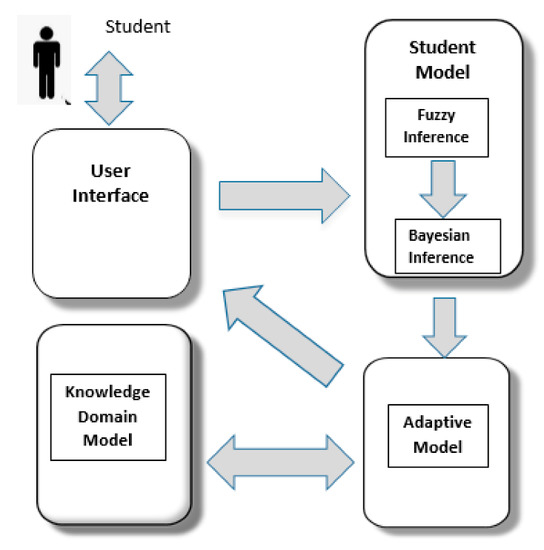The Single Strategy To Use For Bioinformatics Tutor
The Single Strategy To Use For Bioinformatics Tutor
Blog Article
Some Known Questions About Bioinformatics Tutor.
Table of ContentsThe Definitive Guide for Bioinformatics TutorThe Ultimate Guide To Bioinformatics Tutor4 Easy Facts About Bioinformatics Tutor ExplainedThe 30-Second Trick For Bioinformatics TutorSome Known Questions About Bioinformatics Tutor.
Initial project development is relatively taxing, as it includes cautious preparation of the subject, structuring of deliverables, and consideration of the skills and experience levels of participants. However, when a job has been clearly specified and implemented, it has the possible to be recycled in future sessions with only minor alterations to show updates in the area or suit differences in individual histories. This makes project-based learning a lasting and reliable mentor technique over time, specifically in rapidly progressing techniques like bioinformatics.To ensure connection and reproducibility of understanding, offering shared lab note pads-- either digital or physical-- is critical. These notebooks offer as collective logs where pupils can record their progress, code, methodologies, and results throughout the program. Not only do they strengthen understanding by encouraging paperwork and reflection, but they additionally offer as post-course reference materials that participants can get in touch with in future study or academic tasks.
Advisors play an important duty in the success of project-based courses. Coaches likewise act as function models and inspire trainees to continue seeking jobs in computational biology and associated areas.
Facts About Bioinformatics Tutor Uncovered
Another key element of the discovering procedure is offering individuals the chance to offer their work to others, particularly to an audience past their instant project team. Last discussions or mini-conferences allow trainees to verbalize their findings, receive useful responses, and gain confidence in connecting scientific content. This discussion part is typically a favorite among students, as it validates their efforts and highlights the real-world importance of their job.
The efficiency of this strategy was shown by the overwhelmingly favorable comments received after the first course was provided. The success prompted repeat offerings of the exact same program layout in 2015 and 2016. Each version of the program was fine-tuned based on individual responses and developing finest techniques in rearing. These adaptations guaranteed that the core objectives-- hands-on knowing, collaboration, and applied analytic-- stayed undamaged while increasing the deepness and breadth of topics covered.
A significant visualization that captured individual sentiment was a word cloud generated from reactions to the 2014 end-of-course survey. Participants were asked, "What was the most effective part of the program?" and their feedbacks were assembled right into a visual word cloud. In this representation, the size of each word suggests just how frequently it was discussed, with words like "hands-on," "partnership," "real-life issues," "support," and "interactive" showing up most prominently. This aesthetic responses strengthened the program's focus on experiential discovering and mentor assistance.
The contributions of individuals such as Rustici, G., Orchard, S., Cowley, A., and Twells, R., along with other participants of the EBI user-training-working group, contributed in improving the course structure and material. Their understandings helped form a comprehensive and adaptable design that could be adapted to different institutional and regional contexts.
Some Known Incorrect Statements About Bioinformatics Tutor

Jones, Rasmussen, and Moffitt (1997) likewise advocated look at this website for interdisciplinary understanding through collective project work, noting its ability to simulate professional atmospheres and prepare trainees for future scholastic or industry functions. In a detailed review, Thomas (2000) analyzed multiple studies on PBL and wrapped up that trainees not only carry out well academically however likewise create a deeper understanding of the subject matter and enhanced team effort abilities.
In the context of bioinformatics education and learning, innovative methods like classroom games and simulation-based training have actually likewise been employed. As an example, Schneider and Jimenez (2013) introduced using interactive video games to educate organic data integration, allowing students to understand complicated concepts through experiential knowing. This kind of gamification matches the hands-on knowing emphasized in project-based courses by introducing a component of enjoyable and competition, which can even more improve involvement.
Going back to the training course gone over right here, the lessons found out from the application of project-based discovering in a bioinformatics establishing have more comprehensive ramifications for other STEM areas. The method emphasizes not just technological efficiency, but also communication, cooperation, and crucial reasoning-- abilities that are significantly valued in both academia and sector.
Some Known Factual Statements About Bioinformatics Tutor
The scalability of the training course style additionally makes it a viable model for various other institutions. With suitable modification based upon neighborhood requirements, offered sources, and individual profiles, the structure can be duplicated or adapted for usage in various other clinical domains. Additionally, the inclusion of organized mentorship and analysis techniques helps make certain consistent top quality and measurable knowing end results.

In final thought, project-based learning in bioinformatics supplies an effective method to mentor facility, Visit Your URL interdisciplinary web content in such a way that is both easily accessible and intellectually stimulating. By stressing collaboration, functional application, and essential questions, such efforts not only enhance private discovering but additionally contribute to the cultivation of a brand-new generation of innovative and skilled scientists.
Bioinformatics Tutor Can Be Fun For Anyone

One more key aspect of the understanding process is giving participants the chance to offer their job to others, specifically to an audience beyond their immediate task group.In the broader academic literary works, project-based understanding (PBL) has actually been extensively researched and validated as a reliable technique for promoting deep understanding, important thinking, and transferable skills. Adderley et al. (1975) stressed Learn More Here the value of job approaches in greater education, noting that they advertise energetic understanding and freedom. Schneider and Jimenez (2013) presented the usage of interactive games to educate biological information integration, allowing students to understand complex concepts with experiential knowing.
Report this page